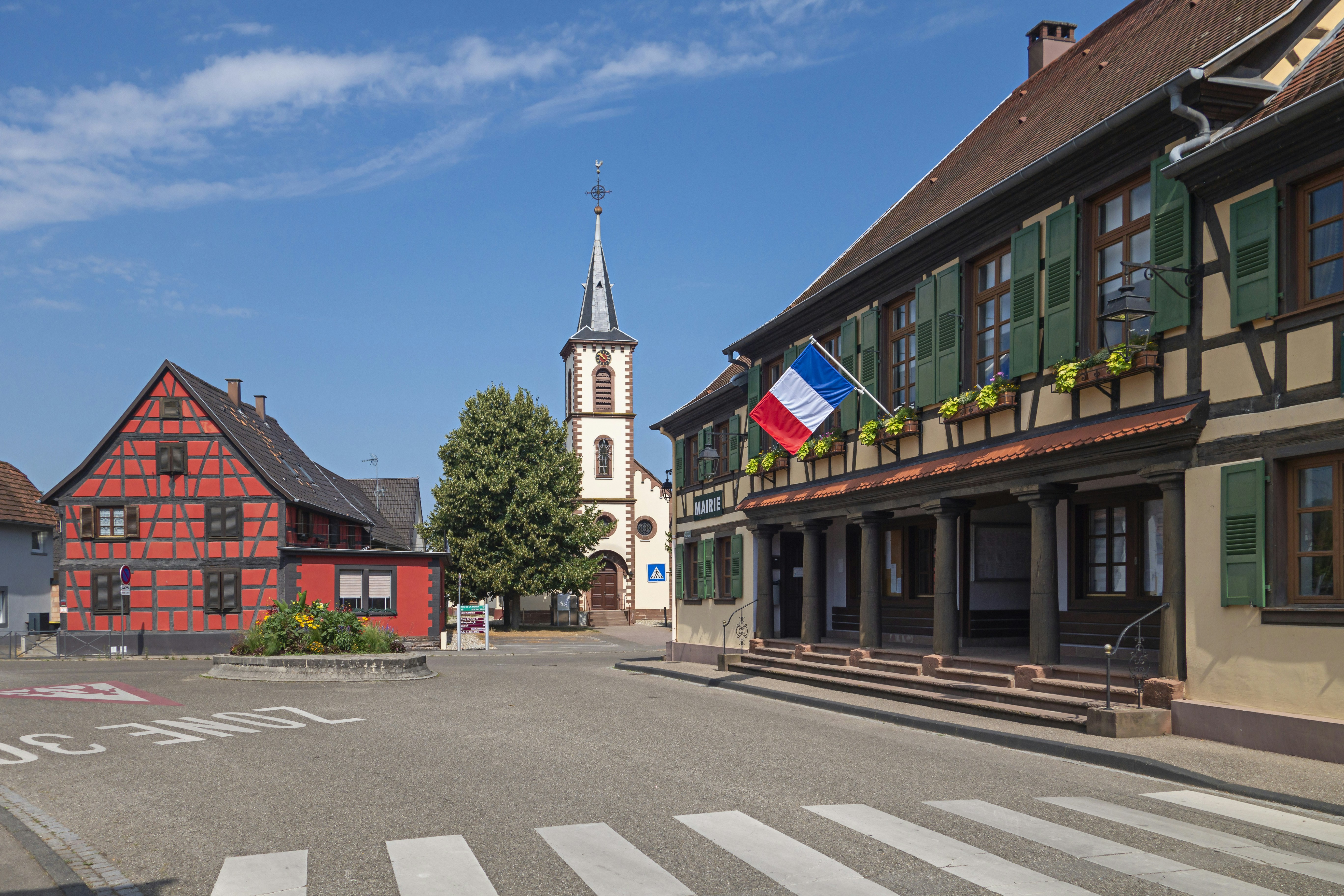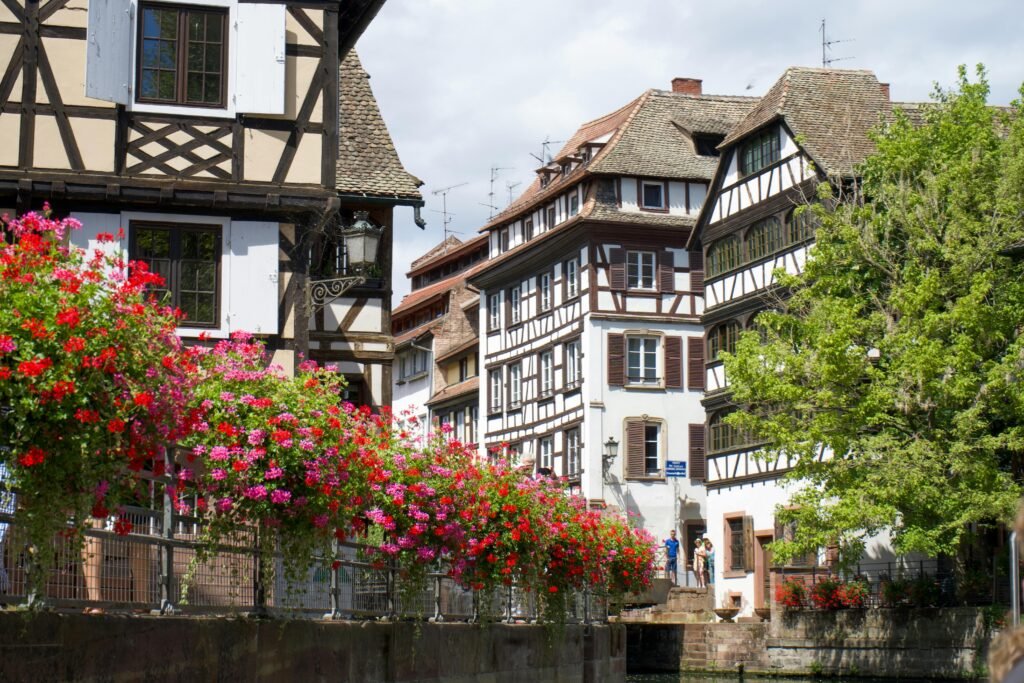Introduction to Rural France’s Hidden Gems
Rural France, often overshadowed by its bustling cities and renowned landmarks, conceals an array of picturesque villages that beckon those seeking authenticity and tranquility. These hidden gems, scattered across the countryside, offer a unique glimpse into the country’s rich history, culture, and natural beauty. As travelers increasingly yearn for destinations that provide a respite from the frenetic pace of modern life, these quaint villages present an attractive alternative to mass tourism hotspots.

Each of these charming villages tells its own story, steeped in tradition and local heritage. The vibrant architecture, often characterized by stone cottages adorned with colorful flowers, evokes a pastoral dreamscape that captivates the senses. Meandering streets invite exploration, with each corner revealing a delightful surprise, whether it be a local boulangerie, a historic chapel, or a scenic viewpoint overlooking the surrounding countryside. The slower pace of life here offers visitors the chance to savor the moment and disconnect from the everyday hustle.
The allure of these rural enclaves lies not only in their picturesque settings but also in the warm hospitality of the locals. Residents often take immense pride in their communities, sharing stories and lifestyles that have been passed down through generations. Engaging with these local inhabitants enables travelers to gain deeper insights into the customs and traditions that define rural French living. This connection enriches the travel experience, fostering a sense of belonging amidst the charming backdrop.
In essence, the villages of rural France stand as living museums, preserving a way of life that few have the opportunity to witness. As we embark on this exploration of hidden gems, let us uncover the beauty, tranquility, and authenticity that await in the heart of the French countryside.
Understanding the Allure of Off-the-Beaten-Path Villages
Travelers often seek out lesser-known villages for a multitude of reasons, with the promise of authenticity being one of the most compelling. Unlike popular tourist destinations, which can be saturated with crowds, off-the-beaten-path villages provide an opportunity to immerse oneself in genuine local culture. Here, one can discover traditions, gastronomy, and lifestyles that have remained relatively unchanged over the years. This immersion not only enriches the travel experience but also fosters a deeper understanding of the region and its history.
The slower-paced living found in these hidden gems allows visitors to appreciate the simple pleasures of rural life. From wandering through quaint streets lined with stone houses and blooming gardens to enjoying leisurely meals at family-run establishments, every moment can be savored. Moreover, this tranquility often translates into a more meaningful engagement with the environment and its inhabitants. Travelers may find themselves sharing stories with local artisans, farmers, or shopkeepers, creating connections that transcend the typical tourist experience.
Additionally, exploring lesser-known villages often leads to discovering unique attractions that may not be highlighted in travel guides. Scenic landscapes, historic architecture, and local art can be easily found off the tourist path, offering visitors the chance to create their own narratives and memories. Such experiences not only culminate in a richer travel narrative but also encourage a more responsible form of tourism that benefits local economies without overwhelming them.
In summary, the allure of off-the-beaten-path villages lies in the authentic experiences they offer, fostering human connections and allowing travelers to engage with the local culture on a more intimate level. By venturing into these hidden gems, explorers can uncover a side of rural France that is often overlooked, enriching their journey significantly. Whether it is through dialogue with locals or simply enjoying the serene landscapes, these villages hold stories waiting to be discovered.
Top Hidden Gems to Visit in Rural France
Rural France is replete with picturesque villages that remain off the tourist radar, showcasing unique architecture, rich history, and serene landscapes. These hidden gems are often overlooked, yet they offer insights into the authentic charm of French life.

One of the most enchanting villages is Riquewihr, nestled in the Alsace region. Often described as a fairy-tale village, Riquewihr is famous for its well-preserved medieval buildings, including the stunning 16th-century Dolder Tower and the scenic vineyards that surround it. The cobbled streets, adorned with vibrant flower boxes and half-timbered houses, beckon visitors to explore its charming shops and local wine tasting. The history of Riquewihr is steeped in winemaking, and it is classified as one of the `Les Plus Beaux Villages de France`, highlighting its cultural significance.
Another remarkable destination is Eze, perched high above the Mediterranean Sea. This village offers breathtaking views and boasts a rich heritage. Its narrow, winding streets lead to the magnificent Jardin Exotique, which features an array of succulents and cacti, as well as a stunning panorama of the coast. The village is home to historical sites such as the medieval Château de la Chèvre d’Or, which reflects the region’s architectural beauty and history.
Lastly, the village of Vézelay, located in Burgundy, is famous for its Basilique Sainte-Marie-Madeleine, a UNESCO World Heritage Site. This basilica, with its intricate sculptures and serene ambiance, draws visitors from around the world. The village itself is characterized by its steep streets and charming stone houses, making it a perfect stop for those seeking inspiration and tranquility amidst rural landscapes.
These villages embody the essence of rural France, offering insights into the country’s artistic heritage, natural beauty, and timeless charm.
Experiencing Authentic French Culture in These Villages
Rural France offers a rich tapestry of cultural experiences that reflect the country’s deep-rooted traditions and practices. Visitors to these picturesque villages will discover a vibrant assortment of local festivals that celebrate the unique heritage of each community. These events are not merely occasions for gathering; they serve as a reminder of the enduring customs that define rural life in France.

The culinary delights of rural France are particularly noteworthy, as they showcase a farm-to-table ethos that has been preserved for generations. Many villages boast local markets where artisans and farmers sell their fresh produce, cheeses, and specialty items. Participating in these markets allows visitors to engage directly with the inhabitants and taste authentic regional products, often crafted using time-honored methods. Dishes that speak to the heart of French culture, such as coq au vin or ratatouille, reflect the use of seasonal ingredients, inviting travelers to partake in a culinary journey that encapsulates the essence of French rural life.
Additionally, traditional practices such as craft-making and artisanal production contribute to the vibrant tapestry of life in these communities. Visitors may have opportunities to engage in workshops or demonstrations that teach age-old skills such as pottery, woodworking, or hand-weaving. By witnessing the creation of these crafts firsthand, tourists gain a deeper appreciation for the craftsmanship that goes into maintaining these historical practices. This immersive experience not only enriches one’s understanding of French culture but also fosters a connection between visitors and local artisans.
Exploring these lesser-known villages reveals the soul of France, where culture is alive and thriving. Every festival and culinary experience invites travelers to step back from the hurried pace of urban attractions and appreciate life at a slower rhythm, revealing the heart and soul of authentic French culture.
Activities and Attractions in Rural Villages
Exploring the charming rural villages of France offers a plethora of activities and attractions that cater to a variety of interests. One of the most popular pursuits is hiking. The picturesque landscapes are perfect for walking enthusiasts, featuring a network of trails that take adventurers through lush vineyards, rolling hills, and scenic countryside. Whether it’s an easy stroll or a more challenging hike, these walking routes allow travelers to connect with nature while soaking in the tranquility that only rural settings can provide.
Wine tasting, another noteworthy activity in these villages, showcases the region’s rich viticultural heritage. Many local vineyards offer guided tours that not only educate visitors about the wine-making process but also provide opportunities to sample exceptional local wines. Engaging with passionate vintners helps emphasize the uniqueness of the terroir, allowing travelers to appreciate the distinctive flavors produced by the region’s soil and climate.
In addition to nature and wine, exploring local markets is a delightful way to immerse oneself in the community. These vibrant markets are often held weekly and offer a variety of local products including organic vegetables, artisanal cheeses, and handmade crafts. Engaging with local vendors provides insight into the customs and culinary traditions of the area. Many artisans are eager to share their techniques and stories, adding to the richness of the experience.
For those with a penchant for history and culture, visiting ancient churches, chapels, and heritage sites adds an enriching dimension to one’s journey. Discovering the stories behind these historic landmarks fosters a deeper understanding of the region’s past. As travelers explore each village, they are likely to uncover a tapestry of experiences that reflect the heart of rural France.
The Importance of Sustainable Tourism in Rural France
Sustainable tourism plays a crucial role in preserving the unique character and integrity of rural villages in France. These hidden gems, often overlooked by mainstream travelers, possess a distinct cultural heritage and a vibrant local community that thrives on the balance between tourism and sustainability. By emphasizing responsible travel, visitors can contribute positively to the economic stability of these communities while also minimizing their environmental impact.
Travelers heading to rural France can adopt various practices that promote sustainable tourism. One effective approach is to engage with local artisans and businesses. By purchasing handmade crafts, enjoying locally-sourced meals, and staying in family-run accommodations, visitors not only support the local economy but also foster a sense of community resilience. Additionally, choosing to visit during off-peak seasons can help to reduce the environmental strain that comes with mass tourism, allowing natural resources to recover and maintain the beauty of these picturesque villages.
Moreover, the ecological footprint of tourism can be diminished through responsible transportation choices. Opting for trains or buses instead of rental cars reduces carbon emissions and encourages visitors to embrace the charm of the rural landscape. Walking or biking through the countryside can enhance the travel experience, offering an intimate view of the surroundings while sustaining local ecosystems.
Education also plays a vital role in promoting sustainable tourism. Travelers should stay informed about the customs and conservation efforts of the areas they visit. Understanding the significance of preserving local wildlife, historical sites, and traditional practices fosters a deeper connection and respect for the communities. By making conscientious decisions, travelers can enjoy their adventures and leave a positive legacy for generations to come.
Practical Tips for Visiting Rural Villages
When planning a visit to the hidden gems of rural France, timing can greatly enhance the experience. The best times to explore these picturesque villages are during the spring (April to June) and early autumn (September to October). During these months, travelers can enjoy mild weather, fewer tourists, and vibrant landscapes, filled with blooming flowers or autumn foliage. Additionally, numerous local festivals and markets occur during these periods, providing an authentic taste of regional culture.
Transport options to reach rural villages vary, as public transport may not consistently service all locations. Renting a car is often the most effective way to navigate the countryside, allowing travelers to set their own schedules and explore at their leisure. Major cities, such as Paris or Lyon, have car rental services that can facilitate this journey. Alternatively, some villages may be accessible via regional trains or bus systems, but checking schedules in advance is advisable, as service may be limited on weekends and holidays.
Accommodation in rural France offers a range of choices, from charming bed and breakfasts to cozy gîtes and boutique hotels. Staying in a village allows for an immersive experience where travelers can connect with locals and enjoy traditional cuisine. Websites dedicated to vacation rentals and agritourism can also provide comprehensive options, enabling bookings that suit varied budgets. It’s recommended to reserve accommodations in advance, particularly during peak travel seasons, to ensure availability.
Lastly, navigating rural French villages is generally straightforward, as most communities are compact, allowing for easy exploration on foot. Familiarize yourself with a local map, and don’t hesitate to ask locals for directions or recommendations. Many rural areas also feature marked hiking trails that guide travelers through stunning landscapes, enhancing the overall ambiance of these hidden gems.
Personal Stories from Travelers: Discovering Hidden Gems
Travelers who venture off the beaten path in rural France often describe their experiences in these picturesque villages as transformative and enriching. One traveler recounted her visit to the charming village of L’Isle-sur-la-Sorgue, where she stumbled upon a local market filled with vibrant produce and handcrafted goods. “The atmosphere was intoxicating,” she expressed, “filled with the laughter of locals and the tantalizing aromas of freshly baked bread. It felt as though I had stepped into a painting.” Such spontaneous moments highlight the unique charm that can be discovered in lesser-known destinations.
Another adventurer shared his experience exploring the idyllic village of Saint-Cirq-Lapopie, which sits perched on a cliff overlooking the Lot River. “It was like entering a fairy tale,” he reminisced, emphasizing the awe he felt when he wandered through narrow cobblestone streets lined with medieval houses. “What stands out the most to me is how peaceful it was. There were no crowds, just the sounds of the river and birds singing—truly a hidden gem.” His reflections underscore how visiting remote locations can offer a sense of tranquility that bustling tourist hotspots often lack.
Conclusion: Ready to Discover Your Own Hidden Gem?
As we’ve explored throughout this post, rural France is home to an array of enchanting villages that embody authenticity and charm. These hidden gems offer a stark contrast to the bustling tourist hotspots, inviting travelers to immerse themselves in a more serene and culturally rich experience. From the breathtaking landscapes to the inviting architecture, each village presents its own unique story and set of traditions, allowing visitors to engage deeply with the essence of French rural life.
We have traversed through the winding streets of quaint hamlets, each boasting its own character and history. Whether it’s the rustic beauty of a forgotten medieval town or the vibrant colors of local artisan markets, there’s something truly magical awaiting those willing to step off the beaten path. These villages not only entice with their picturesque surroundings but also provide genuine interactions with locals, where travelers can relish in culinary delights, partake in seasonal festivities, and purchase handmade crafts that reflect regional artistry.
As you prepare to embark on your own adventure through rural France, consider seeking out these lesser-known locations. Planning a trip that places you in the heart of these communities allows for a richer, more fulfilling travel experience. You’ll find that each visit to a hidden village is an opportunity to create lasting memories and to appreciate the tranquil beauty of life away from the tourist crowds. So, pack your bags, grab your travel itinerary, and set out to uncover the hidden treasures of rural France. The quaint villages awaiting you are sure to deepen your appreciation for this country’s exquisite cultural tapestry.



